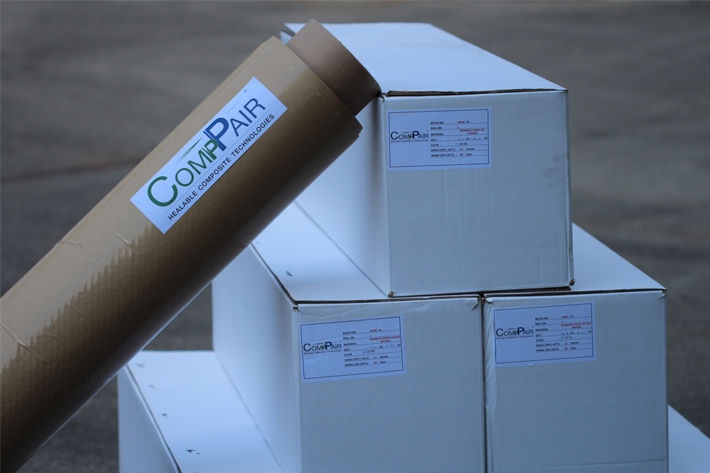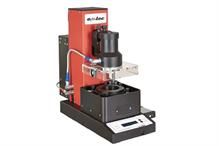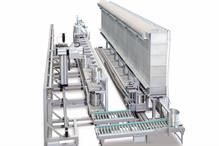
CompPair’s HealTech is a ground-breaking innovation in the field of self-healing composites, a new prepreg enabling the production of composite structures that can heal damage on-site in one minute and be recycled more efficiently. The goal of this POC was to close HealTech’s recycling loop on a three-dimensional monolithic product, representative of many sporting goods and relevant to both companies’ activities. Specifically, the companies achieved their goals by producing a bicycle shoe sole with virgin HealTech glass prepregs, recycling the fabric ply by ply, and producing the same sole with 87 per cent of recycled pre-cut fibres.
Through this work, CompPair’s recycling process demonstrated the reclaim of continuous fibres with more than 80 per cent of their original flexural strength (a measure of the part’s mechanical properties, following ASTM standards), compared to only 32 per cent with microwave pyrolysis. In addition, the life cycle analysis showed the benefits of shifting from a conventional incineration disposal method to a recycling one, potentially reducing mineral resource use by 72 per cent and CO2 emissions by 13 per cent.
The impacts were evaluated for a functional unit of 1kg of glass fibre-reinforced healable CompPair composite, considering raw materials, production, transports, repairs, and end-of-life. Scenarios were modelled based on the ecoinvent 3.7 database and the results calculated with the Impact World+ method in version 9.2 of the SimaPro software. CompPair and Decathlon are now seeking industrial partners to refine the recycling channels and upscale the recycling process, CompPair said in a press release.
Both companies are in line with each other’s visions, CompPair can contribute to Decathlon’s aim to significantly reduce its environmental impact with new solutions across the whole lifecycle of its composite products: from reducing production footprint to providing efficient end-of-life solution while increasing product durability. This project originates from a collaboration between the Laboratory for Processing of Advanced Composites (LPAC) and CompPair.
The Switzerland Innovation Tech4Impact funding Initiative, powered by E4S Tech4Impact, the Swiss Federal Institute of Technology Lausanne (EPFL) and the LPAC who hosted the project as well as the Decathlon Composites industrial division and the Van Rysel brand supported this project.
Fibre2Fashion News Desk (GK)

